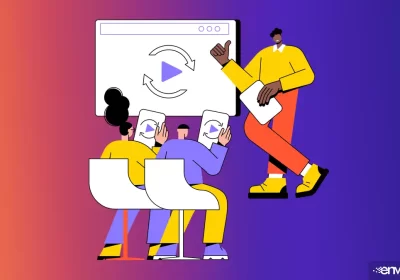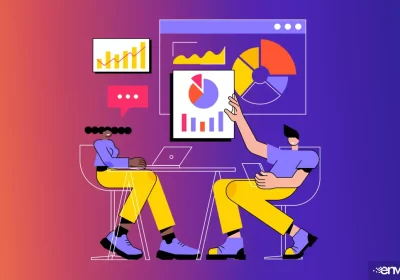How Google Algorithms Affect Your Website

The developments and updates to Google algorithms are progressive procedures and calculations that Google uses to ensure that the search results returned by a search query are high quality and relevant. Whether you are an SEO professional or new to SEO, you should always be in the know about these perpetual search phenomenons that Google deploys.
Throughout the year, Google changes it algorithms hundreds of times. While most of these changes are minor, Google occasionally rolls out major algorithm updates such as Google Panda, Google Penguin, and Google Hummingbird that have serious impacts on search results.
Google Algorithms
For SEO professionals, beginners, and search marketers, being aware of the dates for these Google updates can offer clarity into shifts in your website organic traffic, rankings and eventually aid in improving your website search engine optimization. Below, we have listed three of the major algorithmic changes, how they work and how you can prepare your website so that when these algorithms are updated, you will know how to protect your website from being penalized.
[1] Google Panda

Status: Rolls out monthly
Purpose: Decrease visibility for sites with low quality content
Google Panda is an algorithm used to give a content quality score to web pages and penalize sites with low quality, high ad-to-content ratios, and spammy content. Upon its release, Panda searched Google’s index for sites that contained erroneous content, duplicates, and other bad practice techniques. When it comes to businesses online, one has to consider best fit versus best practice, but employing black hat SEO is neither a best fit and certainly not a best practice.
Panda was also able to provide data about sites users blocked via the SERPs (search engine results pages) directly or via the Chrome browser.
How to Keep Your Website in Compliance with Google Panda
- Duplicate content – Duplicated content is one of the more common triggers for Panda and it confuses Google. If your website uses Yoast SEO plugin, you’re in luck as checking for duplicated content is really easy. Yoast has a built-in duplicate content checker located in the ‘Advanced’ settings. You should perform this task every now and then.
- Keyword stuffing – Keyword stuffing is when you go overboard using keywords for page elements; using too many. Again, if you’re using Yoast SEO plugin on your website, it saves you from yourself. In the premium version you are allowed a maximum of five keywords. This is sufficient for a single page optimization.
- Quality content – Quality content is based on data and not quantity, although you don’t want ‘thin content’ either where there’s just a few lines of text on a page. Quality content that’s based on data can be measured. For example, you can see how well your content is performing is Google.
- User experience – From website navigation to customer service, ensure you are providing an exemplary user experience. Not only is poor user experience bad for business, your business may get ousted to the world as was the case with DecorMyEyes negative reviews. Google made a rare move and reactively adjusted the algorithm to target sites using similar tactics.
[2] Google Penguin

Status: Real-time
Purpose: Remove sites with spammy, natural links
Google Penguin was release in 2012 with the goal of removing websites from search results that gained ranking due to spammy link practices. These links were often purchased and irrelevant to its industry or niche for the sole purpose of generating traffic. Penguin accomplishes it mission by applying a negative value to to specific links that causes a reverse result making the sites rank lower instead of higher.
If your site was affected by Google Penguin, chances are you were trying to put one over on the search engines and you undoubtedly suspected that it would happen. A large percentage of sites affected by Google Penguin purchased links from link farms, link networks, etc.
How to Keep Your Website in Compliance with Google Penguin
- Remove bad links – You will need to identify the bad links across your website and remove them. If you have a lot, you may want to use Google disavow tools to get rid of these backlinks.
[3] Google Hummingbird

Status: —
Purpose: Generate more precise search results by better understanding the meaning behind search queries
Google Hummingbird algorithm update set the ground work for voice search. It’s goal is to understand search phrases and give you the exact information you want. Hummingbird was really important change to Google’s algorithm as it was more of an overhaul versus an update. The three areas of focus for Hummingbird are voice search, conversational search, and human search.
How to Benefit From Google Hummingbird
- Speak your audience’s language – Learn more about how your audience refers to your products or services when talked about on other platforms such as social media. Knowing what keywords your audience uses when mentioning your brand help you to write better copy for your website, on social networks and the web in general. There are numerous social media listening tools that can aid in this process such as Sprout Social
- Use long-tail keywords – Use long-tail keywords in your pages, posts and ads to better connect with your audience and customers. A long-tail keyword is a keyword phrase that contains at least three keywords that your visitors are more likely to use when using voice search or typing a search query.
Wrapping It Up
So, those are the three major updates I selected for this article along with a few tips and suggestions to assist you with keeping your site in compliance and making use of Google updates. There are more updates to Google algorithms than the three we covered we above such as Google Pigeon, Google Mobilegeddon, Google RankBrain, and more, but I’ll cover those in a different article.
I look forward to your comments and questions below. I’m interested to know how you recovered if affected by any of these updates. Good luck and keep thriving!

Hazel Burgess
FOUNDER/SEO DIRECTOR
Hazel is the Founder & SEO Director at Envisager Studio, a premier website design agency specializing in WordPress website design, development and internet marketing. In her spare time, she writes about search engine optimization, website design, and internet marketing.


